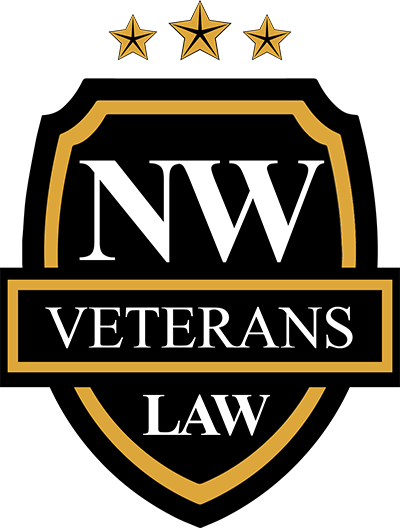
An original claim is an initial formal application for benefits on a form prescribed by the VA. The VA prescribes the use of VA Form 21-256 for original claims. When a Veteran files an original claim it is the first time that inform the VA know that there is claim for benefits.
Every case is different, but there are core elements that must be proven in every claim for award of service-connected disability compensation. First, the claimant must be a military Veteran which the VA defines as “a person who served in the active military, naval, or air service, and who was discharged or released therefrom under conditions other than dishonorable.” Then, the VA must have evidence which proves (1) A current disability (diagnosed by a medical professional); (2) An in-service disease, injury or event; and (3) A nexus between the current disability and the in-service disease, injury or event. Some Veterans think of a “nexus” as the bridge that connects the current disability to the military. Congress has identified certain presumptive conditions under which Veterans do not need to prove a nexus.
Veterans can request their Military Service Records by completing form SF-180, and mailing it to the appropriate entity listed on the back of the form. You can download a fillable SF-180 free of charge from the internet. Make sure you specifically request your military service treatment records (STR) which is your chronological medical, dental and psychiatric treatment records created while in service. If you received care at any military treatment facility (MTF) then you need to identify that facility specifically so that their records might be included as well.
A Rating Decision is the first VA document that tells you whether your claim was granted or denied. It provides an explanation of the VA’s reasoning behind the grant or denial of your claim. It generally includesthe decision as well as a narrative supporting that decision and a Code Sheet. The Code Sheet identifies your overall disability level and the diagnostic codes of your disabilities.
A Decision Letter is a “cover letter” that usually accompanies the Rating Decision. It is generally written about the same time as the Rating Decision and briefly explains the outcomeof the claim. If benefits are granted it will identify the amount of the compensation granted, the effective date of the disability and your overall disability rating.
The Effective Date of your disability is generally the date that the original or initial claim for benefits was received by the VA. For an initial claim, your disability compensation will begin on the first day of the first month following the effective date. If you appeal an adverse decision in a timely manner your effective date should remain the original date that the VA received your claim. When the VA eventually grants your disability, you will receive past-due disability compensation from the effective date to the date that the VA granted your claim.
Generally, a Veteran has 12 months from the date on the Notice of Decision to appeal the Rating Decision. Sometimes, however, a VA decision will specify a shorter amount of time. If you are uncertain about how much time you have to take action, please contact a VSO or VA Accredited Attorney right away. Failure to meet appeal deadlines may severely affect your disability claim and compensation. Best practice is to act right away when you receive an adverse decision.
The amount of time it takes to get a final decision from the VA after filing an appeal varies, but the current time for a decision after a Regional Office appeal is about 4-6 months. Appeals to the Board of Veterans Appeals can take 12-18 months or longer.Of course, every case is different and appeal time depends on the volume of cases that the VA is adjudicating when your case is appealed.
A Veterans Service Officer (VSO) assists Veterans, dependents and survivors with initial VA benefit applications. VSO’s can also help connect you to the wide range of benefits available through the VA. VA Accredited Attorneys, on the other hand, are licensed attorneys who are accredited by the Department of Veterans Affairs to represent Veterans in arguing and presenting facts to prove entitlement to VA benefits. All Northwest Veterans Law Accredited Attorneys are military Veterans with extensive experience analyzing claims and arguing in front of the VA. Northwest Veterans Law can represent Veterans at any Regional Office in the nation and before the Board of Veterans Appeals in Washington, D.C.
An Accredited Attorney may represent a Veteran for compensation any time after the VA issues an initial decision on a claim. An initial decision may include an initial decision on disability ratings, or increased ratings, an initial decision on service-connected benefits, or a decision on a supplemental claim. If you file a claim and you receive everything that you believe you should, then you may not need an Accredited Attorney. But, Northwest Veterans Law does offer a free case evaluation to determine whether the VA made a mistake and owes you additional compensation.
Northwest Veterans Law is authorized to meet with you to review your situation and evaluate your evidence to help you decide whether to file a claim. The cost for a one-hour meeting and evidence review is $65. Accredited Attorneys cannot, however, receive compensation for helping to file an initial claim. After you receive your initial decision Northwest Veterans Law will provide you with a free review to help you decide whether to appeal. Initial decisions can have errors in several areas, such as: denying service connection, establishing the wrong effective date, rating your disability under the wrong diagnostic code (mischaracterizing your disability) or granting a disability level that is lower than is appropriate.
Unfortunately, the VA considers reopening a denied claim to be an initial claim for purposes of attorney compensation. A VSO may assist you in reopening a denied claim. If the VA denies your claim for reopening, then Northwest Veterans Law becomes eligible to represent you in appealing the reopening denial.
Northwest Veterans Law proudly offers a free one-hour case evaluation for VA disability appeal cases.We offer a reduced rate of $65.00 for evaluating all other case types.Your case evaluation will allow you to meet with an Accredited Attorney, who is also a veteran, for one full hour. The Accredited Attorney will review your claim, review your evidence, answer your questions and explain your options.
The first step toward a case evaluation is to submit an intake form from our website. Our staff will contact you to discuss your case. Next, you will need to send us a copy of any Rating Decision or Statement of the Case that you want to appeal. It is very helpful if you also provide our Accredited Attorney with any additional evidence that supports your appeal before your case evaluation. The more information we have before the consultation, the better we are able to evaluate your claim. Case evaluations can occur in our offices, over the phone or over video as you prefer.
Yes. Northwest Veterans Law proudly represents Veterans at Regional Offices in all states and territories. We also routinely argue cases in front of the Board of Veterans Appeals in Washington, D.C. Our Oregon offices are open to personally meet with Veterans but we also employ tools and systems to seamlessly represent Veterans from sea to sea.
Generally, we receive payment only if you win. When you win your appeal you will be entitled to a lump sum payment of past-due monthly compensation from the effective date of your claim to the date of your successful appeal decision. Northwest Veterans Law will collect a reasonable percentage of the past-due compensation, you will receive the vast majority of the past-due compensation plus you will collect 100% of the monthly compensationfrom that point forward. We can also set up an hourly fee agreement if that is what you prefer.
Each service branch maintains a Board for Correction of Military Records (BCMR)which is capable of correcting any military record if it is necessary to fix an erroror overcome an injustice. Each service branch also maintains a Discharge Review Board (DRB). Like the BCMR, the DRB is authorized to upgrade certain discharges based on equity or propriety. The DRB has a 15-year statute of limitations from the date of discharge. An attorney need not be accredited by the VA to represent a veteran before either board.
Discharge Review Boards focus on whether a Servicemember’s discharge was proper, lawful, and equitable based on the laws and regulations in effect at the time of the discharge. Boardsfor Correction of Military Records have the authority to change any military record when necessary to correct an error or remove an injustice.The Boards for Correction of Military Records assume authority to review discharges after fifteen years when the Discharge Review Boards loose jurisdiction.
Yes. Northwest Veterans Law has years of experience representing Veterans before the Discharge Review Boards and Boards for Correction of Military Records. We offer a 25% from our hourly rates for Veterans who need this service. We also offer a monthly payment program to help you plan and budget.
DISCLAIMER: The information contained in these FAQ’s is provided for general informational purposes only, and may not reflect the current law in your jurisdiction. No information contained on this website should be construed as legal advice from Northwest Veterans Law, its attorneys or staff nor is it intended to be a substitute for legal counsel on any subject matter. No reader of this website should act or refrain from acting on the basis of any information included in, or accessible through, this website without seeking appropriate legal or other professional advice that take into consideration the particular facts and circumstances at issue.

